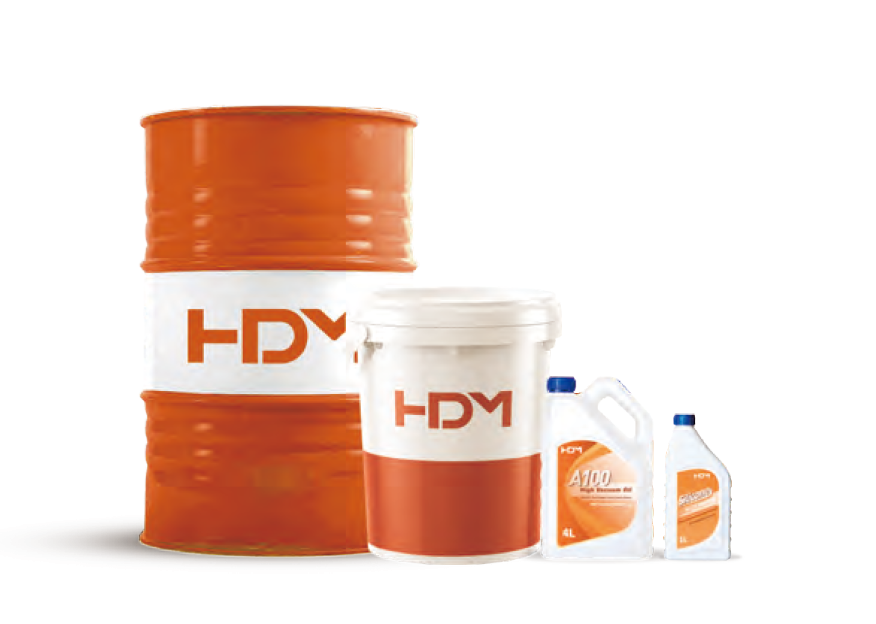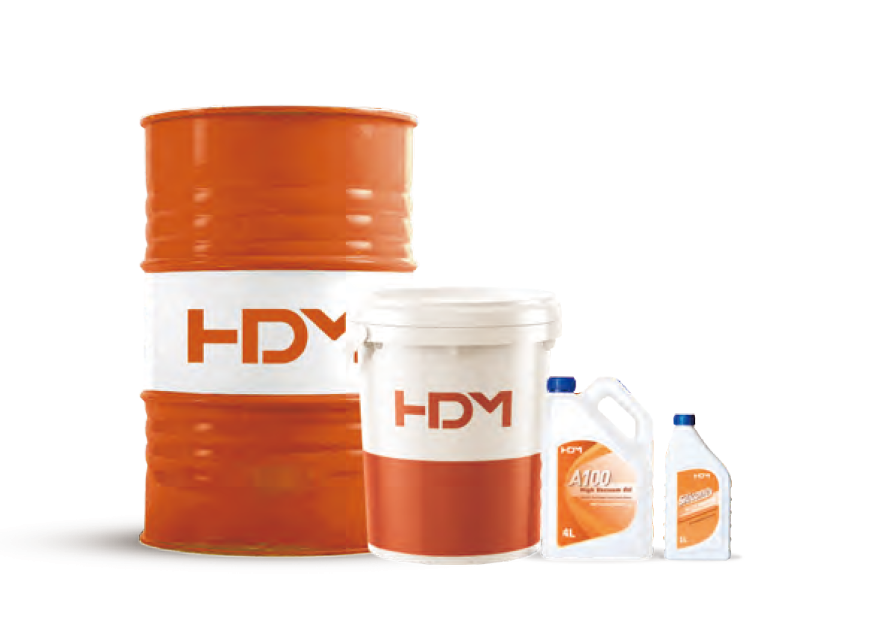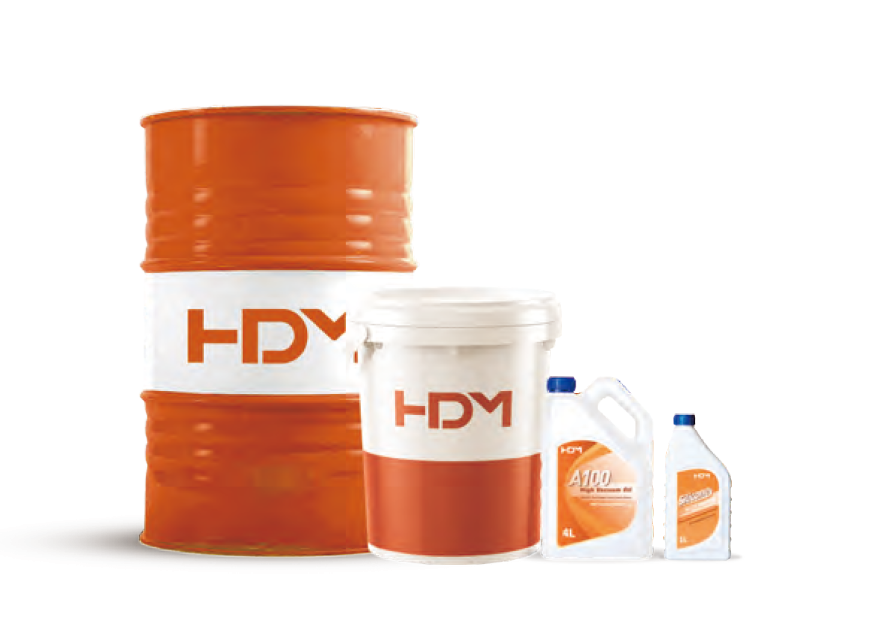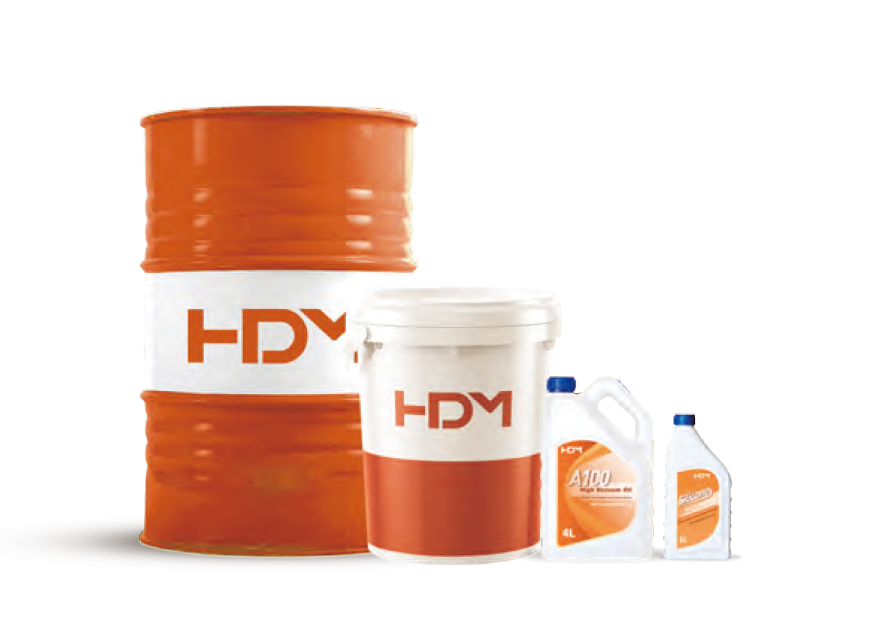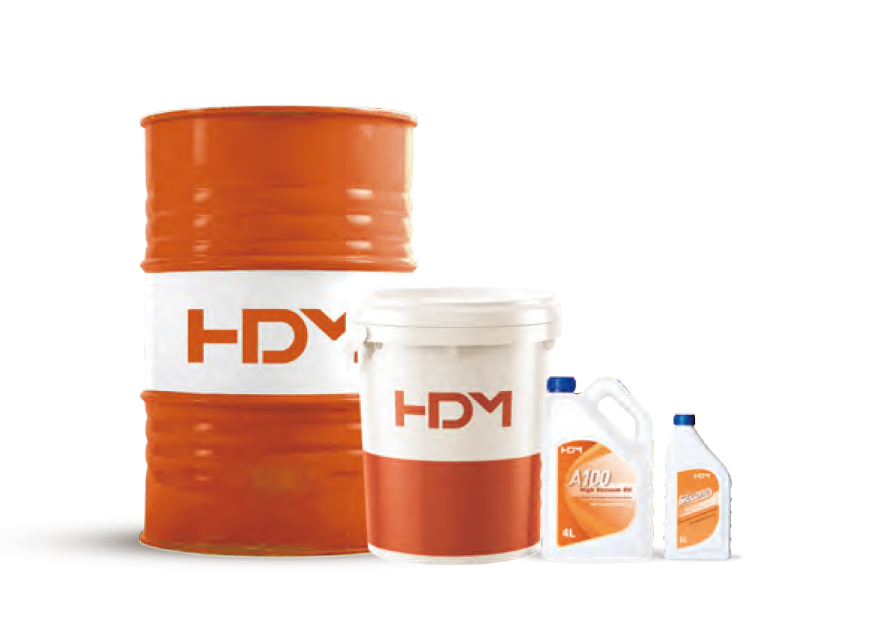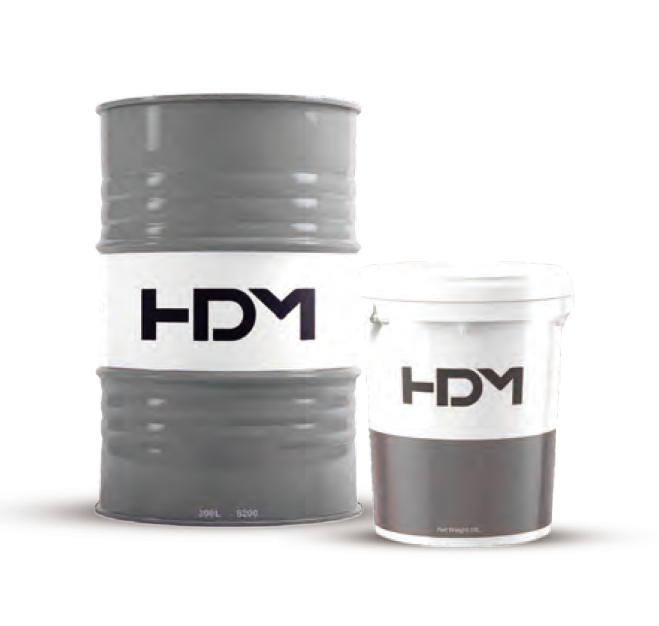Non-OEM approved engine lubricants have established a sizeable presence in the automotive engine lubricants market. But do they offer the same quality as official OEM approved products? HDM compared the performance of the new Formula Prestige V 5W-30 passenger car motor oil with non-OEM approved products.
There is a considerable price difference between OEM-approved engine oils and non-approved products. Many car owners can't help but wonder if cheap, unapproved motor oil is actually of lower quality. To clarify this matter, Kuwait Petroleum Research and Technology Center (KPR&T) conducted a comparative study on the quality of official OEM approved Formula Prestige V 5W-30 and non-approved 5W-30 PCMO. The results speak for themselves…
Extensive testing according to VW 504.00/507.00
In order to compare the quality and performance of the official OEM-approved Formula V 5W-30 and the non-approved 5W-30 PCMO, KPR&T conducted a series of tests on the two products:
- Viscosity test
- Oxidation stability test
- deposit control test
Viscosity Test Results

The results of the viscosity test showed that the non-approved oil did not comply with the specifications of VW 504.00/507.00 for CCS and MRV viscosity. In addition, the pour point is lower than the industry standard, while the shear stability shows poor performance.
Oxidation test results
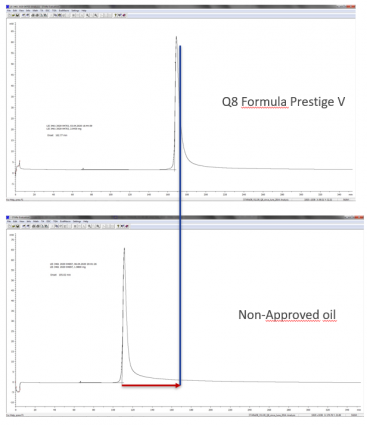
Due to its superior oxidation control, Formula Prestige V 5W-30 increases oxidation induction time by more than 50% compared to non-approved motor oils.
Deposit Test Results
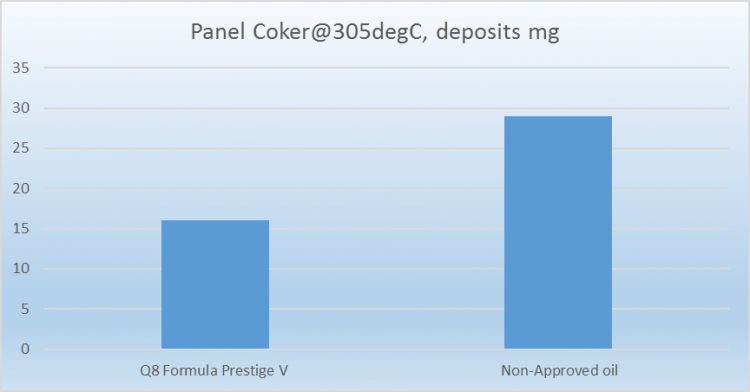
In the flat cooker test, the unapproved PCMO showed almost twice as much deposit formation compared to Q8 Formula Prestige V 5W-30.
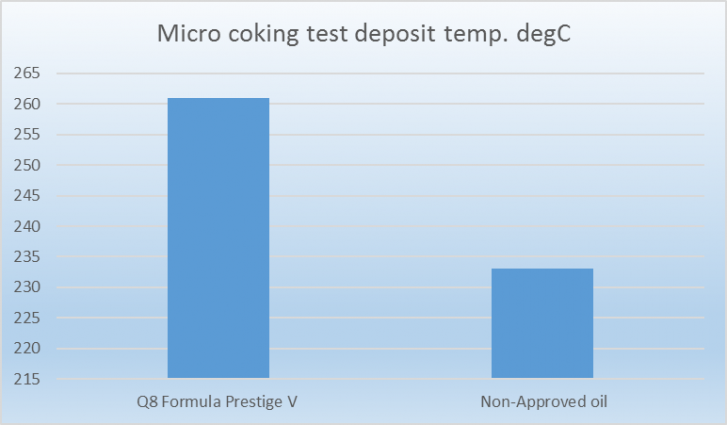
In microcooker tests, Q8 Formula Prestige V 5W-30 showed higher deposition temperatures compared to unapproved PCMO. The higher the sediment temperature, the better the sediment control.
test conclusion
Unapproved VW 504.00/507.00 oils do not meet basic industry standard specifications on several parameters.
- CCS and MRV viscosities are not within specification and pour points are clearly deficient.
- Unapproved PCMO is less shear stable than Q8 Formula Prestige V 5W-30, causing increased engine wear.
- Oxidation and deposit control is not as good as Q8 Formula Prestige V 5W-30, increases sludge formation and reduces engine cleanliness. In the long run, this will lead to poor engine performance and even engine damage.
Analysis revealed that the non-approved oil used lower GII quality base stocks, non-approved additive technology and a lower quality VI-Improver system, resulting in compromised lubricant performance.
Hybrid Vehicle Lubrication Challenges
During acceleration, the hybrid switches from one engine to the other at the appropriate moment, creating a win-win in terms of energy efficiency. This translates into lower fuel consumption and reduced CO2 emissions.
However, it also presents some specific challenges:
- When the internal combustion engine starts when the hybrid vehicle is already driving at high speed, it introduces heavy loads during cold starts, increasing the risk of engine wear.
- Moisture and acid are more likely to form due to the short operating time of the internal combustion engine.
- Insufficient use of the internal combustion engine can lead to fretting wear.
- Short trips using only the electric motor increase the risk of flooding the internal combustion engine.
These special engine operating conditions result in low oil temperatures, with which the additive chemistry must be compatible. In this harsh environment, water ingress and sludge formation can lead to severe oil degradation over time. Combined with the use of biofuels, this can further accelerate the oil degradation process in HEV applications. This means that only the highest quality motor oils are suitable for hybrid vehicles.
4 Great Reasons You Should Use an OEM Approved PCMO
Formula Prestige V 5W-30 is approved under VW 504.00/507.00, which is considered one of the most stringent PCMO OEM requirements.
When servicing your car, it is recommended to use only motor oils that are fully approved by the manufacturer.
that's why……
- Proven fuel efficiency performance
Increasingly stringent emissions standards and the race for best fuel economy are driving OEMs to design and develop new and smaller engines. Newer engines require engine oils with new ingredients and innovative formulations. Developing the right oil requires a solid understanding of engine hardware, as well as a solid understanding of oil properties and additive composition specifications. - Environmental protection
To protect engines and the environment, many engine oil specifications include constraints that limit the use of certain chemicals. When metals such as calcium, sodium or magnesium burn, they form ash, which can damage a vehicle's aftertreatment system.
Oil manufacturers invest heavily in developing new motor oils that reduce sulfated ash, phosphorus and sulfur (SAPS) content, providing enhanced engine protection while protecting the environment. - Avoid LSPIs
Low-speed pre-ignition (LSPI) is an undesirable phenomenon that is increasingly occurring in turbocharged, direct-injected gasoline engines.
Pre-ignition causes uncontrolled peak pressures and shock waves on the pistons, which can lead to severe engine damage such as bent connecting rods, damaged annulus and cracked piston rings. Learn more about LSPI in the article Preventing Engine Damage Caused by LSPI.
To prevent LSPI in small engines, new oil characteristics are required, which are now incorporated into the latest engine oil specifications. - Avoid Warranty Issues
There is another important reason for the end user to use an OEM-approved PCMO. Using an oil not approved by the automaker may void the OEM warranty.



